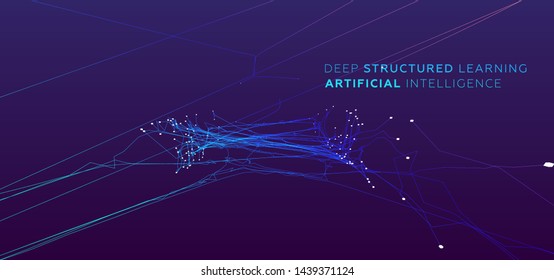The nexus of quantum computing and deep learning heralds a transformative era in computational capacities and methodologies. As both fields burgeon, the potential for quantum computing to revolutionize deep learning is becoming a focal point for scholars, researchers, and industry leaders alike. Quantum computing and deep learning, when synthesized, promise to unleash unprecedented capabilities in data processing, algorithm efficiency, and problem-solving paradigms.
Traditionally, deep learning relies heavily on classical computing architectures, such as CPUs and GPUs, to train models through extensive datasets. However, these classical systems grapple with limitations as data dimensionality and volume escalate. Enter quantum computing, which leverages the principles of quantum mechanics—superposition and entanglement—to perform calculations at speeds and complexities unattainable with conventional hardware.
The first angle to consider is the superposition of quantum states, which allows quantum bits, or qubits, to exist in multiple states simultaneously. This property significantly enhances computational throughput. For deep learning practitioners, this means that models could process vast amounts of data in parallel rather than sequentially. Tasks that conventionally require verifying a multitude of variables could be expedited exponentially.
Furthermore, entanglement enables qubits that are interlinked to share information instantaneously, regardless of distance. In the realm of deep learning, this confluence of data could facilitate more intricate relationships and correlations among datasets. As a result, patterns that might elude classical systems due to their computational constraints might be readily apparent to quantum systems. Such an evolution positions quantum-enhanced deep learning models as potential pioneers in fields ranging from natural language processing to computer vision.
Another promising facet of quantum computing is its ability to optimize algorithms. Optimization is a linchpin in deep learning, influencing how models converge to solutions and how effectively they generalize from training data. Quantum algorithms, specifically designed for optimization purposes, stand to significantly reduce the time it takes to achieve convergence. Techniques such as quantum annealing exhibit the potential to explore vast solution spaces efficiently, thus revolutionizing how deep learning networks are trained.
Consider the implications of quantum-enhanced reinforcement learning. Quantum algorithms could dynamically optimize decision-making processes in real-time. Imagine an agent that learns from its environment, such as a self-driving car adjusting its path to navigate through traffic. A quantum-enhanced reinforcement learning system could permit the analysis of myriad scenarios, leading to highly informed, rapid responses that transcend the limitations of classical systems.
Nevertheless, the melding of quantum computing and deep learning is not without its complexities and challenges. Current quantum systems face hurdles such as error rates and decoherence that can hinder reliable computations. These physical constraints necessitate robust error correction methods and innovative architectures that can accommodate the idiosyncrasies of quantum error propagation. As the field progresses, developing solutions to these challenges will be essential in harnessing the full potential of quantum computing for deep learning applications.
Moreover, an autonomous transition towards quantum algorithms requires a paradigm shift in how researchers conceptualize and structure their models. The intricacies of quantum mechanics could become integral to model architecture, necessitating a foundational understanding of both quantum theory and computational paradigms. There is an urgent need for interdisciplinary collaboration between quantum physicists and machine learning experts to effectively bridge these two domains.
As the quantum computing landscape rapidly evolves, educational institutions and industry players must invest in curating a knowledgeable workforce equipped with skills that transcend traditional computational methodologies. Advanced curricula that integrate quantum mechanics with artificial intelligence can foster innovation, enabling researchers to conceptualize and design next-generation algorithms that utilize quantum benefits to their fullest extent.
The broader implications of quantum computing in deep learning span various industries. In healthcare, models capable of performing computations at quantum speed could revolutionize diagnostics and treatment personalization by synthesizing and analyzing vast datasets from genomic studies. In finance, quantum algorithms might redefine risk assessment and portfolio optimization, streamlining processes that currently require extensive human and computational resources.
As we peer into the horizon of this technological confluence, one cannot overlook the ethical dimensions intertwined with the advent of quantum computing in deep learning. As potent decision-making tools, models need stringent oversight to prevent biases inherent in the data from translating into unfair algorithms. Developing comprehensive governance frameworks will be crucial to ensure accountability and ethical adherence as these powerful systems become integrated into society.
The marriage between quantum computing and deep learning is more than a convergence of technologies; it unveils a new landscape of investigative possibilities. With the capacity to transcend the constraints of classical computation, quantum deep learning inspires a reexamination of existing methodologies and ideologies. It promises not only to enhance the precision and speed of machine learning processes but also to raise thought-provoking questions about the future of intelligence—both artificial and human.
In summary, as the journey towards fully realizing quantum deep learning unfolds, it is imperative to embrace a rigorous, curious mindset. The synthesis of these disciplines holds formidable potential but also encapsulates a realm of uncharted territory. A concerted effort from multiple disciplines, robust educational initiatives, and ethical frameworks will be paramount in navigating this exciting frontier, illuminating the path for breakthroughs that may soon lie within our reach.












